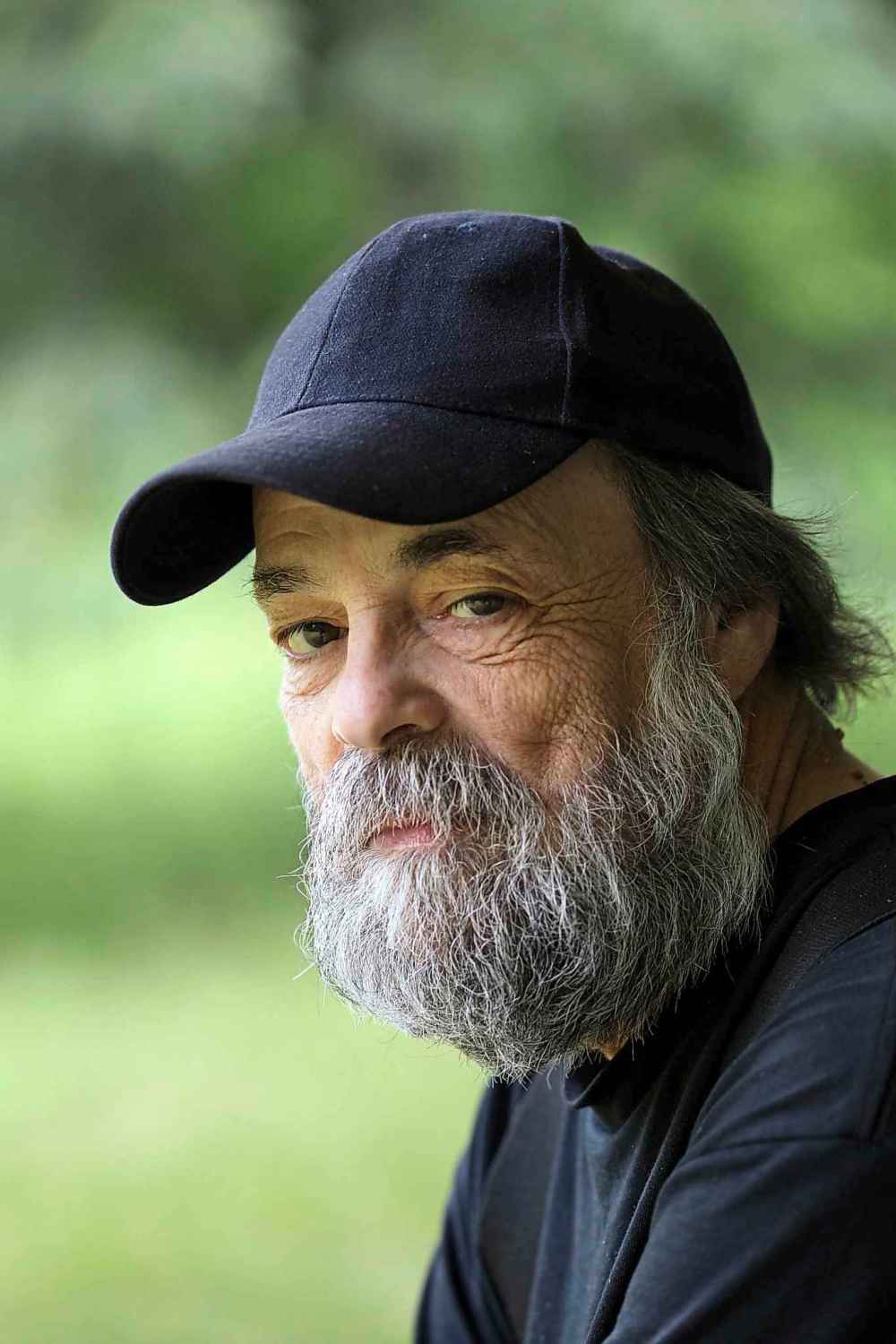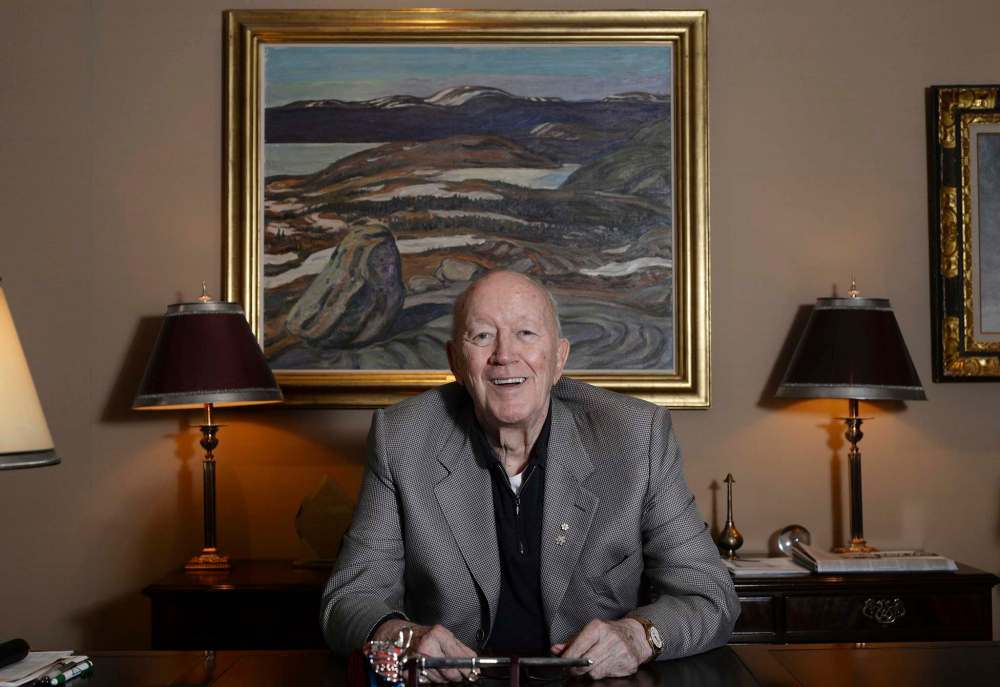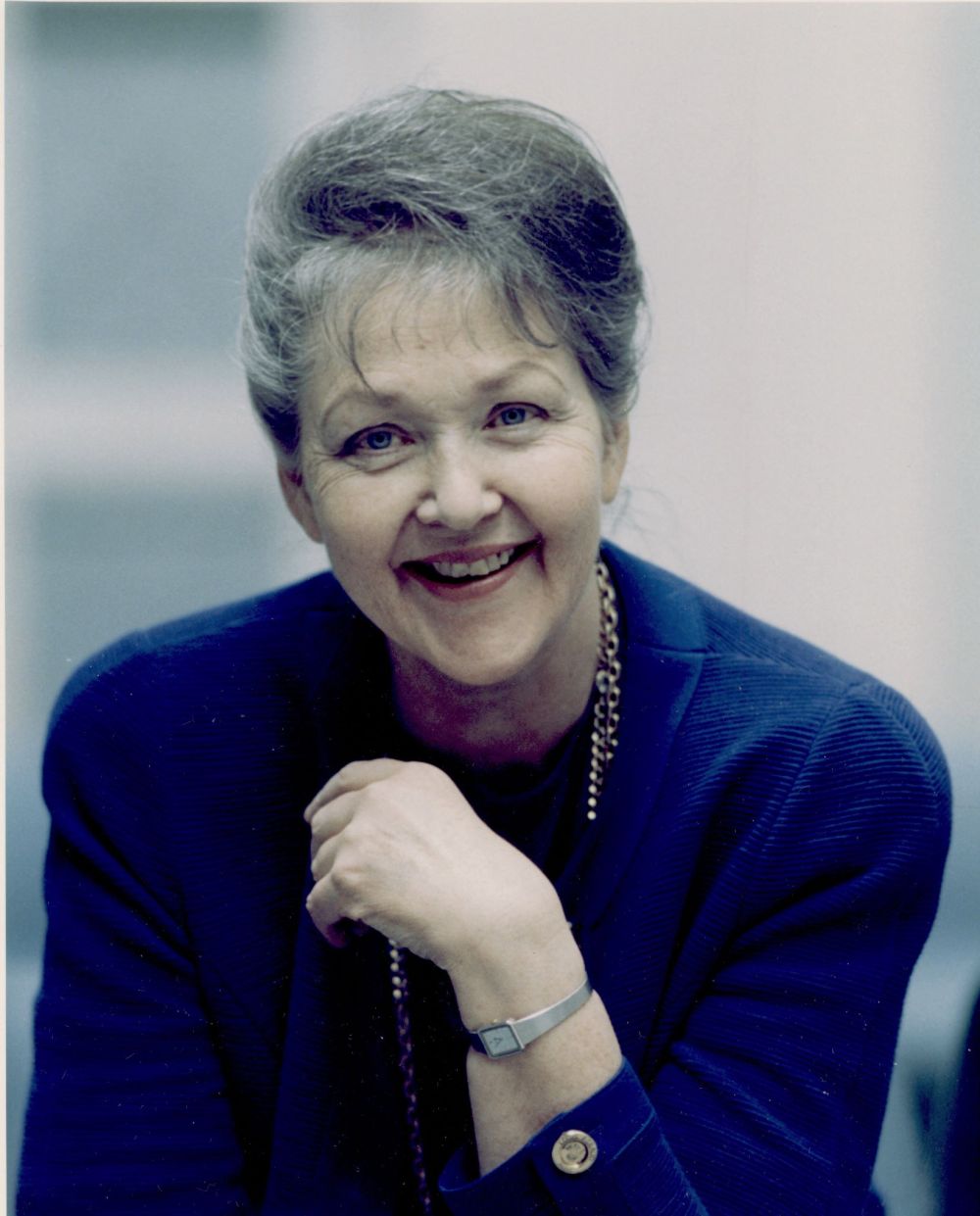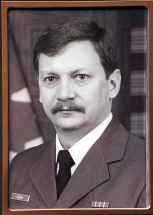Passages: 2019 Prominent Manitobans who died over the past year
Read this article for free:
or
Already have an account? Log in here »
To continue reading, please subscribe:
Monthly Digital Subscription
$0 for the first 4 weeks*
- Enjoy unlimited reading on winnipegfreepress.com
- Read the E-Edition, our digital replica newspaper
- Access News Break, our award-winning app
- Play interactive puzzles
*No charge for 4 weeks then price increases to the regular rate of $19.00 plus GST every four weeks. Offer available to new and qualified returning subscribers only. Cancel any time.
Monthly Digital Subscription
$4.75/week*
- Enjoy unlimited reading on winnipegfreepress.com
- Read the E-Edition, our digital replica newspaper
- Access News Break, our award-winning app
- Play interactive puzzles
*Billed as $19 plus GST every four weeks. Cancel any time.
To continue reading, please subscribe:
Add Free Press access to your Brandon Sun subscription for only an additional
$1 for the first 4 weeks*
*Your next subscription payment will increase by $1.00 and you will be charged $16.99 plus GST for four weeks. After four weeks, your payment will increase to $23.99 plus GST every four weeks.
Read unlimited articles for free today:
or
Already have an account? Log in here »
Hey there, time traveller!
This article was published 03/01/2020 (2168 days ago), so information in it may no longer be current.
A year in their lives
The Free Press shone a light on both ordinary and prominent people in 2019, telling their stories in the A Life’s Story feature that runs on the cover of the Saturday Passages section.
A couple of them helped injured veterans after being wounded in the Second World War. Another collected stuffed bears for the enjoyment of all. One gave millions of dollars to help build health facilities while another collected the works of a notable artist to later donate to assist in the creation of an art gallery in Assiniboine Park. And another, living with special needs, was able to own and look after his own home.
These are just a few of the people, both ordinary and prominent, who the Free Press shone a light on in 2019, telling their stories in the A Life’s Story feature that runs on the cover of the Saturday Passages section.
An equal number of women and men were highlighted in the feature. And whether they were ordinary or prominent citizens, they all had one thing in common: interesting lives.
Here are links to take you to each of their stories:
The year saw the province lose a dedicated philanthropist, a flood forecaster who repeatedly saved Winnipeg, an Indigenous veteran, a promoter of folk music, the owner of the city’s original fast-food restaurant, the man who helped save Winnipeg’s heritage buildings, a pair of prominent businessmen, a labour mediator and an award-winning newspaper columnist and author.
•••
Kathleen Richardson was born into one of the city’s most prominent families and she, like her mother before her, took to heart the guiding principle, “Unto whom much is given, much is also required.”
Richardson, who died at 91 on Sept. 14, spent her life as a businesswoman, community volunteer and philanthropist who quietly — and without fanfare — helped numerous organizations in the city.
One of them was the Royal Winnipeg Ballet. Her dream of being a ballerina ended at an early age because she was deemed too tall, but it gave her the opportunity to help the organization in other ways, including serving as president and fundraiser, along with being — quietly, behind the scenes — an important donor.
And the ballet wasn’t just the only local organization helped by Richardson, who came to be known as “anonymous.” Others included the Winnipeg Art Gallery and Dalnavert House.
Richardson also served on the board of James Richardson and Sons Ltd., from 1954 to 1998 and is credited with guiding the expansion of Pioneer Grain, the development of Lombard Place and helping steer the company’s growth into an international brokerage.
“She was a ‘doer,'” said Carolyn Hursh, her niece and current chairwoman of James Richardson and Sons. “She was never involved in name only. She was always actively engaged with every organization she worked with or board she served on.”
•••
The Red River Floodway is the physical structure that saved Winnipeg from floodwaters numerous times, but Alf Warkentin was the one who predicted how high the waters would rise to determine if sandbags were needed in the city.
For 41 years, and through at least 10 major floods, Warkentin, who died at 77 on June 14, was the province’s first flood forecaster. He was able to take information from both sides of the border — how much snow was on the ground, how much water in creeks, streams and rivers — and determine with astounding accuracy what the river water levels would be in Winnipeg.
When Warkentin retired, he recalled watching from the Norwood Bridge at the age of nine as the Red spilled its banks.
“It was a pretty rough river,” he said. “I saw outhouses and I saw some remnants of garages and they would typically hit the bridge and then get smashed and get pulled under.”
•••
Joseph Meconse served in a peacekeeping role both with the military and while sitting in the food court at Portage Place.

Meconse, who died Feb. 17 at 77, was a military veteran who served in a peacekeeping role in Cyprus and Germany, but also in Quebec during the October Crisis when the War Measures Act was invoked by the federal government.
He also became a respected Indigenous figure and spent decades working as a corrections officer at Stony Mountain Institution.
But in 2016, he helped bring in changes to security protocol at the downtown mall, including the hiring of an Indigenous security company, when he was kicked out by mall security, citing a rule that people could sit in the food court for half an hour without purchasing food. The incident sparked a protest, round dance and drum ceremony which he participated in, but he told people not to carry out a boycott.
“I would describe my dad as someone who has always been a very giving person, of his time and of his resources,” said his daughter, Renata Meconse. “If somebody needed something and he had it, he would give them that.”
•••
A lot of good music wouldn’t have been heard and memories made if Mitch Podolak hadn’t been around.

Podolak, who died Aug. 25 at 71, was the co-founder of both the Winnipeg Folk Festival and the West End Cultural Centre.
With a partner, Podolak received $77,000 from various levels of government to mark Winnipeg’s 100th birthday with the Winnipeg Centennial Folksong Festival at Birds Hill Park in 1974. And nearly a half-century later, the Winnipeg Folk Festival is a firmly entrenched and beloved part of the summer.
The West End Cultural Centre opened its doors as a live music venue in 1987. He also began Home Routes, a house-concert touring circuit for musicians, in 2007.
“He wanted to make the world a better place,” said his son Leonard. “The folk festival was a tool of that, that way he could create a utopia one weekend at a time with folk music at the centre.”
•••
Mary Kelekis worked at her father’s business alongside her sisters and spent 70 years there before closing the iconic restaurant’s doors in 2013.

Kelekis, who died Sept. 3, at 94, was the owner of Kelekis Restaurant on Main Street, famous for its fries, hotdogs and hamburgers. Autographed photos on the wall marked the visits of dozens of celebrities who’d eaten there over the years.
Kelekis was also one of the founders of Folklorama.
“She worked hard, as my mother and all my aunts did, but she was sort of the remaining figure after the rest of them had retired or passed away,” said her nephew, Jim Pappas.
•••
The city might be missing quite a few heritage buildings if not for David McDowell.
McDowell, who died June 18 at the age of 80, was called the “father of Winnipeg’s heritage movement” because, without him, landmarks such as Dalnavert and the Millennium Centre might have been razed.
McDowell watched as several of the city’s heritage buildings were demolished in the 1960s and ’70s before deciding he had to do something. He headed a group of protesters to argue against the demolition of the Canadian Imperial Bank of Commerce building at 389 Main St., and the Hamilton Building next door in 1978.
“They are still very sound and could be recycled,” McDowell told the Free Press at the time. “Winnipeg is a very lucky city to still have many of its old buildings and it is very important these be maintained.”
Cindy Tugwell, executive director of Heritage Winnipeg, said McDowell “was one of the original picketers on Main Street to say, “Stop, we’re losing our built heritage at an alarming rate.”
•••
Lawrie Pollard was prescient enough to realize photocopy machines were going to decimate his family’s commercial print shop business. So he gambled, took out loans on his business and home, and bought new machinery to print instant scratch-and-win tickets.
The gamble paid off big because by the time the 90-year-old Pollard died Jan. 4, Pollard Banknote was the leading supplier of instant tickets for dozens of lotteries around the world and had five manufacturing plants across North America.
“To have the willingness to take that risk — and to pull it off — he was very successful, but he did it in a way he was very proud of,” said Pollard’s son Doug.
“And he was grateful for the work of all the people in our company who helped pull it off.”
•••
Jim Burns was a captain of industry who not only reached the top of his profession, but helped his local community.

Burns, who died Feb. 11 at age 89, joined the Great West Life Assurance Co. right after graduating from the Harvard School of Business and was president by the time he was 41. He also served as deputy chairman of GWL’s parent company, Power Corp. of Canada, and on numerous other boards including Investors Group and IBM Canada.
In Burns’ private life, he was a driving force in the creation of what is now called the Manitoba Museum, CentreVenture and the skateboard park at The Forks. He was also a leading mover in the citizen-funded but ultimately futile Save the Jets campaign before the NHL team moved to Arizona after the 1996 season.
For all of his accomplishments, Burns was honoured with the Order of Canada, the Order of Manitoba and was inducted into Manitoba’s Business Hall of Fame.
“It’s a loss for our community, but it is time to reflect on his wonderful contribution to his city and country,” Winnipeg South Centre MP Jim Carr.
•••
If there was a labour dispute in the 1990s, Wally Fox-Decent’s phone would ring.

Fox-Decent, who died Sept. 5 at age 82, brought labour peace to more than 120 public- and private-sector disputes as a mediator and arbitrator. His work included ending a 12-day strike by emergency doctors in 1993, arbitrating an end to a lockout of Manitoba Sugar workers in 1994 and mediating the end of a strike by Westfair workers at Superstore that kept them out on the picket lines for eight months in 1996.
Fox-Decent was a professor of political science at the University of Manitoba from 1962 to 1995, and chief executive officer and chairman of the Workers Compensation Board of Manitoba from 1992 to 2005. He also spent 42 years in the Naval Reserve, rising to become the senior reservist in the country and the first Canadian to chair the NATO Chief of Reserves Committee.
“He was renowned as a labour arbitrator and the person who could bring disparate sides to the table,” said former premier Gary Filmon, noting it’s why he brought him on board to chair the Meech Lake constitutional task force and then the all-party constitutional task force on the Charlottetown Accord.
“He did a great service to the province.”
•••

Randy Turner was a reporter, columnist and storyteller for more than three decades at this newspaper. Along the way, Turner, who died March 13 at age 57, was nominated seven times for a National Newspaper Award, winning it twice. He wrote three books for the paper, including Back in the Bigs and City Beautiful, and amassed more than 65,000 followers of his wit on his Twitter account.
Because of Turner’s time in both news and sports departments, the Winnipeg Jets honoured his memory with a moment of silence before a game at Bell MTS Place, and the city dimmed its illuminated Winnipeg sign at The Forks.
Premier Brian Pallister said after question period in the legislature that Turner “was a funny and intelligent and articulate and incorrigible man, who we will miss” and added Turner “produced some beautiful writing and will leave behind, many, many friends.”
kevin.rollason@freepress.mb.ca

Kevin Rollason is one of the more versatile reporters at the Winnipeg Free Press. Whether it is covering city hall, the law courts, or general reporting, Rollason can be counted on to not only answer the 5 Ws — Who, What, When, Where and Why — but to do it in an interesting and accessible way for readers.
Our newsroom depends on a growing audience of readers to power our journalism. If you are not a paid reader, please consider becoming a subscriber.
Our newsroom depends on its audience of readers to power our journalism. Thank you for your support.











